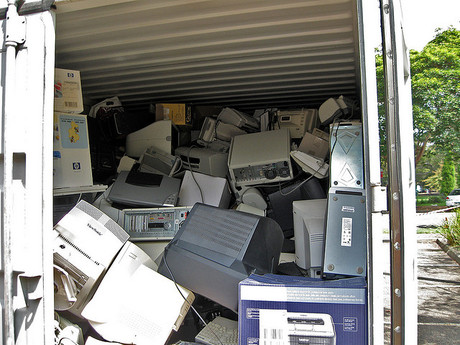Australia behind the e-waste curve

Australia is behind other developed markets when it comes to tackling e-waste, with Australians generating an average of nearly 20 kg of e-waste per person per year.
A study by the Economist Intelligence Unit (EIU), commissioned by Australia and New Zealand Recycling Platform (ANZRP), shows that Australian e-waste systems compare poorly to other developed markets Japan, Finland and Germany.
While Australia has made great strides in the last decade, it is still in the infancy of e-waste recycling, the report states. There is a long way to go until it develops into a sustainable system.
“Our report highlights that for Australia to increase the level of systemic e-waste recycling, there needs to be a greater focus on ‘shared responsibility’, as not only producers, but governments, retailers, business and consumers play a critical role in the e-waste debate,” EIU Senior Economist John Ferguson said.
Electronic waste production is becoming a significant problem - by 2017, the global amount of e-waste produced is projected to reach 65.4 million tonnes, the equivalent of 1200 Sydney Harbour Bridges.
In the face of this issue, several countries are exploring ways to encourage greater participation in e-waste recycling programs. Some producers and manufacturers are also developing strategies for product design, waste reduction and recycling.
ANZRP CEO Carmel Dollisson said the report demonstrates that Australian stakeholders should be looking to adopt these strategies as well.
“The report strongly indicates to us that there needs to be a greater sense of urgency from some parties,” Dollisson said.
“A higher level of shared responsibility needs to be taken, especially by local and state governments, who need to develop immediate action plans to take control of e-waste in their system.”
There is currently only one government-mandated e-waste recycling scheme, the National Television and Computer Recycling Scheme (NTCRS), but this is only one part of a sustainable e-waste recycling strategy, according to the report.
Other countries have implemented strategies including multiple e-waste laws, manufacturer agreements and free e-waste collection points.
Driving data efficiency: three strategies for modern organisations
Achieving data efficiency is critical for sustaining organisational growth in the face of...
AI at scale demands a new approach to data resilience and privacy
Data Privacy Week is a timely reminder that taking control of your data is a strategic...
Australia's path to AI sovereignty lies in strategic control, not reinvention
Many argue that Australia's priority should be building sovereign AI infrastructure and...




